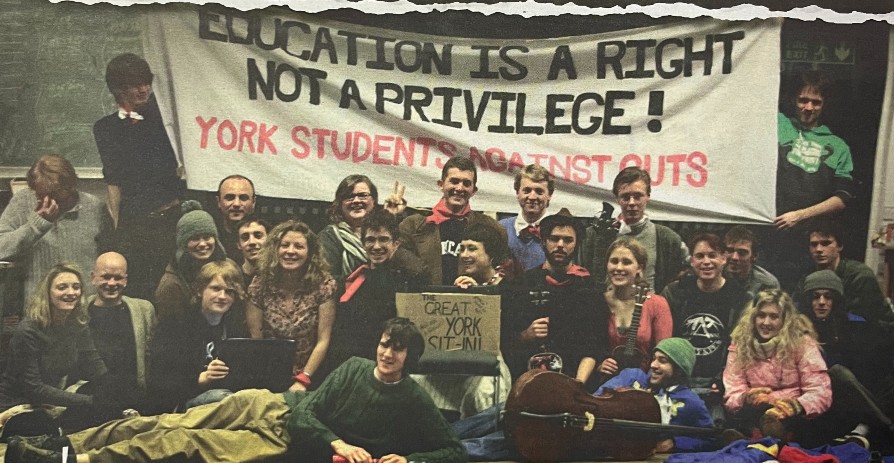- Tim Ngwena (2009/11)
- Tim Ellis (2011/12)
- Kallum Taylor (2012/14)
- Sam Maguire (2014/15)
- Benjamin Leatham (2015/16)
- Millie Beach (2016/17)
- Alex Urquhart (2017/18)
- James Durcan (2018/19)
- Samara Jones (2019/20)
.jpg)
Our history: 2010s
Key people
- Professor Brian Cantor, Vice-Chancellor (2002 to 2013)
- Professor Koen Lamberts, Vice-Chancellor (2014 to 2018)
- Professor Charlie Jeffery, Vice-Chancellor (2019 to present)
- Greg Dyke, Chancellor (2004 to 2015)
- Professor Sir Malcolm Grant, Chancellor (2015 to 2022)
Students' Union Presidents
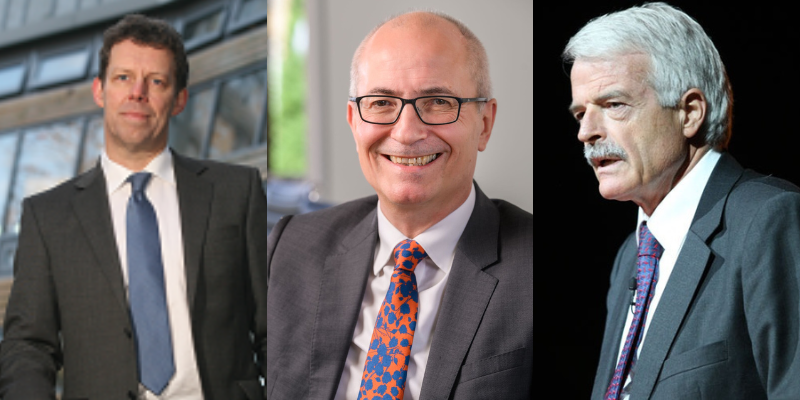
Left to right: Professor Koen Lamberts, Professor Charlie Jeffery and Professor Sir Malcolm Grant
2010s in pictures
Ranking success and a Russell Group welcome
In 2012, the University joined the prestigious Russell Group of research-intensive British universities and continued to enjoy success in leading higher education rankings throughout the 2010s.
In 2012, Phil Baty, the Editor of the Times Higher Education Rankings, said: “In just 49 years, (York) has managed to forge a powerful global reputation as a strong research-led university, and it performs very well against the world’s elite heritage institutions across Times Higher Education’s 13 separate ranking indicators.”
50th anniversary
To kick off our 50th Anniversary in 2013, a celebratory event was held in York Minster. It was the same venue for our inauguration in October 1963, and a year-long calendar of anniversary events began.
The audience included York residents, former students and staff. Chancellor Greg Dyke conferred honorary doctorates on David Hockney and four others who had made outstanding contributions to York and Yorkshire in the last half-century.
The launch coincided with two free exhibitions – at King’s Manor and the Ron Cooke Hub – that focused on the personalities and milestones in the University’s first half-century and its close links with the city. An oral history project captured the memories and opinions of 50 people who played a part in our first 50 years.
.jpg)
Photo credit: Ian Martindale
Higher education funding protests
Following a review into higher education funding in England, 2010 saw the Government pursue a policy of spending cuts and an increase of the cap on tuition fees. These changes sparked national student-led protests.
In York, around 30 students gathered in the Exhibition Centre on campus to stage a sit-in protest. Demonstrations were also held in the city centre, which saw a group of protesters converge on Parliament Street. This activity came after three large marches and demonstrations in London, the first of which was organised by the National Union of Students.
A growing international outlook
The 2010s saw a continued rise in the number of international students choosing to study at York and the formation of new strategic alliances and partnerships with some of the world’s best universities.
The University won the International Student Choice Category Award for the best overall University experience at the Whatuni Student Choice awards 2014. In 2016, we ranked as one of the 100 most international universities in the world by Times Higher Education.
College expansion
Goodricke College’s new site on Campus East was officially opened by the Duke of York in April 2010. Two years later, Langwith College moved onto the new campus and, in 2014, a ninth college was established, named Constantine College after the Roman emperor Constantine the Great, who was proclaimed Augustus in York in 306 AD.
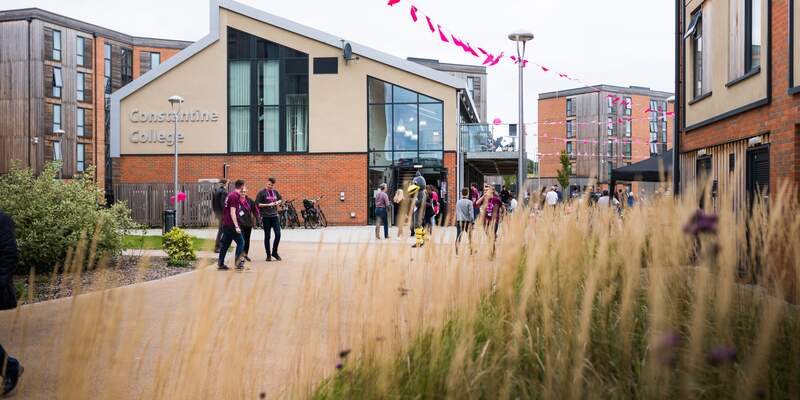
Campus expansion
The development of Campus East continued throughout the decade, with four new sites to accommodate academic departments and a variety of support and social buildings, including the Ron Cooke Hub and York Sports Village.
Campus West also saw much expansion and redevelopment during the 2010s, with the opening of the £13.8m Spring Lane Learning and Teaching Building and £16m Biology teaching and laboratory facility in 2016.
In 2012, author Anthony Horowitz, a York alumnus, opened the Library after a £20m refurbishment programme. The former Computer Science building, which opened in 1997, was converted to create more accommodation for the Library, and named the Harry Fairhurst Building after the first York librarian.
Central Hall, Derwent College, and the Campus West landscape became Grade II listed by Historic England in 2018.
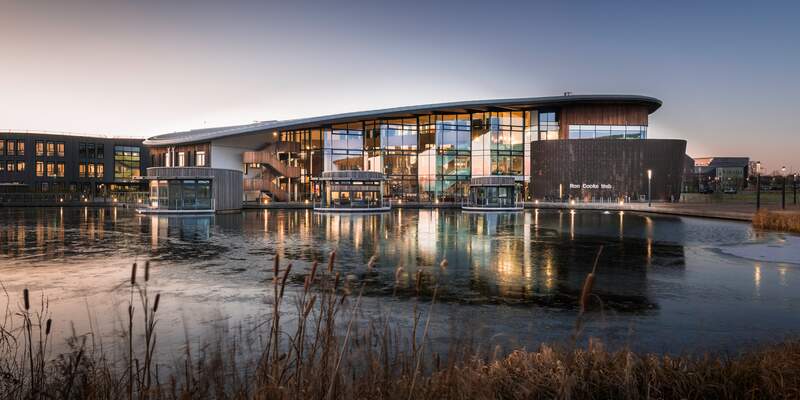
Festival of Ideas
York Festival of Ideas launched in June 2011 with 20 public events across the city and a mission to "educate, entertain and inspire". It continued to grow in both scale and ambition over the decade and, eight years later, the 2019 Festival consisted of over 200 talks, exhibitions, performances and activities.
After winning the award for Best Cultural Event or Festival at the York Culture awards in 2017, the Festival scooped the award for Outstanding Cultural Festival (Large) in 2018.
Sustainability in focus
In a bid to significantly reduce our carbon footprint and respond to the growing climate crisis, the University developed a Carbon Management Plan in 2011. We achieved the Carbon Trust Standard in 2014, a mark of excellence in recognition of measuring, managing and reducing carbon emissions. By the end of the decade, we had reduced our carbon footprint by 38 per cent, achieved through a combination of energy efficiency improvements and behaviour change.
In 2019 we committed to divest from fossil fuel companies. In his inaugural speech, Vice-Chancellor Charlie Jeffery announced this programme of divestment had been completed.

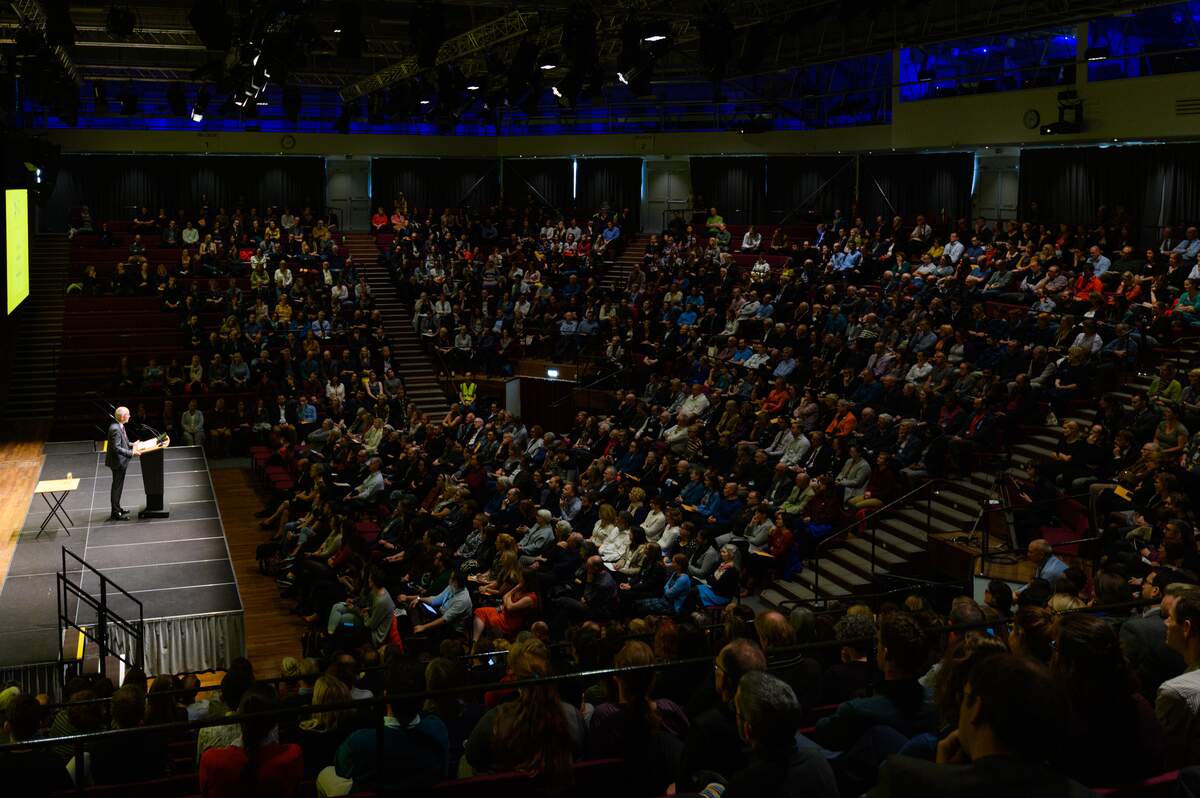
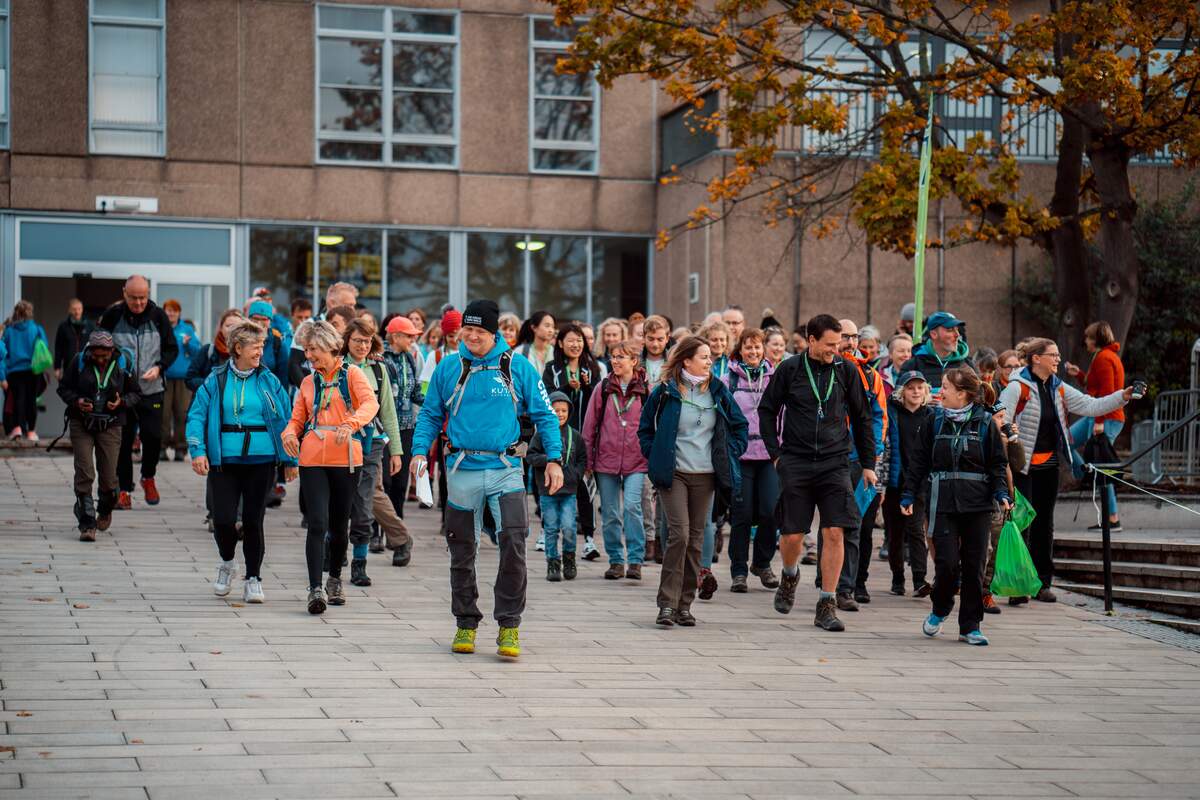
.jpg)
.jpg)
.jpg)
